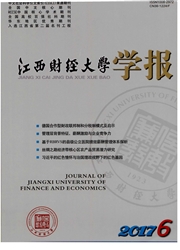

 中文摘要:
中文摘要:
通过对鄱阳湖区1009份农户问卷调查,利用CVM方法和多元线性回归模型实证分析鄱阳湖区农户湿地受偿意愿(WTA)及其影响因素。结果显示,婚姻状况、家庭老人或儿童数、家有村干部及公务员人数、农业类型、距县城距离、村经济发展水平等因素对农户退耕还湿受偿意愿具有正向显著影响;年龄、农技培训、是否处于自然保护区及农户对湿地生态功能的认识程度等因素对农户退耕还湿受偿意愿具有负面影响。在考虑受访者基本特征及外部环境等因素影响情况下利用参数估计方法测算,得出农户受偿意愿间差距较少。据此,提出政府在制定补偿政策时应结合农户受偿意原,提高农户对湿地功能认识、采取多元化的生态补偿模式等建议。
 英文摘要:
英文摘要:
Based on 1009 survey data of farmers in Poyang Lake region, the paper used contingent valuation method (CVM) and multiple linear regression model to analyze the farmers' willingness to accept compensation for returning farmland to wetland and its influencing factors in Poyang Lake region. The results showed that marital status, the numbers of elderly or children, the numbers of village cadres or civil servant at home, agriculture type, distance from home to the county, economic development level of village ere had positive significant impact on farmers' willingness to accept compensation, agricultural technology training, whether in nature reserve, farmers' awareness of wetland ecological functions and other factors had negative impact. Without considering other factors, using non parametric estimation method, in the case of considering the basic characteristics of respondents and the external environment and other factors, using the method of parameter estimation. We found that the gap of the number of the willingness of farmers to accept compensation was small. Therefore, some suggestions were put forward, such as when the government made the compensation policies, farmers' willingness to be repaid should be considered; improving farmers' cognization of wetland function; and adopting diversified ecological compensation model.
 同期刊论文项目
同期刊论文项目
 同项目期刊论文
同项目期刊论文
 期刊信息
期刊信息
